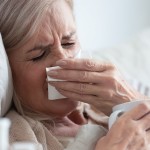
A change of season often leads to cough and cold among older adults. The low immunity level becomes a common reason behind this seasonal flu. If unattended or prolonged, it can lead to pneumonia among the elderly. Some of the preliminary signs of pneumonia in older people include a tired and rundown look with warm and clammy skin. You may also notice them shaking and complaining of feeling too cold. Let’s give an insight into what is pneumonia and its early signs.
What is Pneumonia?
It is an inflammation of the lungs caused by viruses, bacteria, fungi or other organisms. This inflammation causes an outpour of fluids in the infected parts of the lungs. It can affect either one or both the lungs.
Early Signs of Pneumonia
Some of the first signs of pneumonia that you need to watch out include
- Cough: If the cough does not clear up, then it can be a sign of pneumonia. In some cases, it can lead to a build-up of mucus in the lungs. Besides, this cough can be greenish, yellowish or even a bloody substance in some cases.
- Chest Pain: The infection in the lungs can cause pain while coughing or breathing. Sometimes, deep coughing can cause sharp pain in the chest.
- Fever: In most pneumonia patients, fever is a common sign. However, if you are over 65 years, then you may experience low body temperature too.
- Fatigue: With age, you may already be feeling low on energy. Besides, consistent coughing and fluctuating body temperature can also sap the body energy. So, you may also feel exhausted.
- Shortness of Breath: The air sacs in the lungs get filled with pus, which causes difficulty in breathing. You may notice falling short of breath when you try rushing-up for anything. It can be even walking a little fast to answer a phone call or doorbell.
Along with the above signs, a state of confusion is also common in pneumonia patients. These slips are often due to exhaustion and infection.
Ways to Treat Pneumonia
If you notice any of the above symptoms, you should consult a doctor immediately. Pneumonia in older people can get tricky. So, seek doctor advise on a priority basis. If get diagnosed with pneumonia, then follow the below tips for some relief
- Rest well
- Stay hydrated
- Eat fresh and hot meals
- Maintain personal hygiene
- Avoid alcohol consumption and smoking
- Follow doctor advise, stringently
Feeling too tired or need assistance, then consult Samvedna Senior Care. We offer complete care packages for seniors like health care solutions, emergency support, general wellbeing, personal care and home management services. Our personnel can accompany you to the doctor, keep you occupied at home and maintain the home. If you need a doctor on call or any other urgent medical care too, then we can facilitate ambulance assurance and hospitalisation support too. You are precious, and we will be happy to assist in every manner possible. Let’s help you recover and live a healthy and happy old age. Samvedna care is for complete elder care.
from Samvedna Senior Care https://ift.tt/2wFME6D
via IFTTT
Comments
Post a Comment